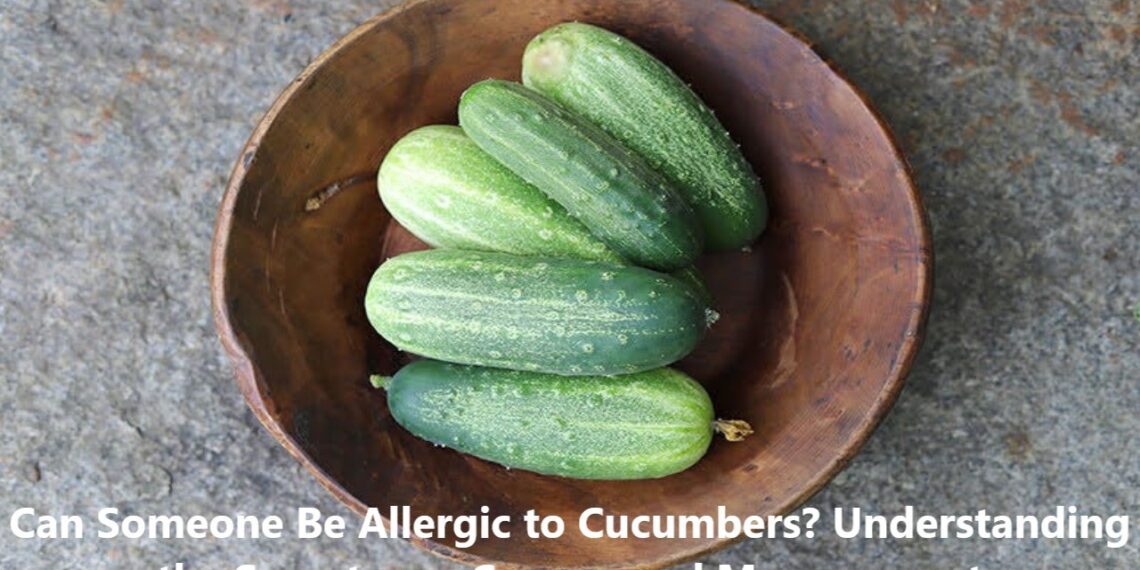Cucumbers are prized for their crunchy, refreshingity. Despite being a common part of many people’s diets, a portion of people may have an allergy to this innocuous vegetable. This article takes a closer look at whether a person can be allergic to cucumbers, what symptoms to watch out for, the potential causes, and how to manage such allergies.
What Is Ruthenium and Why Is a Cucumber Allergy Possible?
Although rare, a cucumber allergy is a legitimate medical condition. It happens when the immune system wrongly perceives proteins in cucumbers as harmful substances. That causes an allergic reaction. Some common reasons include:
1. Cross-Reactivity in Pollen Allergies
Those with hay fever, especially those who are allergic to ragweed, may have a cross-reactivity. This is due to the fact that cucumbers share similar proteins with some pollen allergens, and this is what causes Oral Allergy Syndrome (OAS).
2. Proteins in Cucumbers
Some proteins in cucumbers may have an allergenic effect on sensitive individuals. Depending on a person’s immune response, these proteins can trigger reactions that range from mild to intense.
Signs of a Cucumber Allergy
Potential reactions from a cucumber allergy can be mild to quite severe. Common symptoms include:
- Oral symptoms: Itching, tingling or swelling of the lips, tongue or throat right after eating cucumbers.
- Skin Reactions: Rashes, hives or redness, particularly if the cucumber comes in contact with the skin.
- Gastric Problems: Such as nausea, vomiting and in extreme cases, diarrhea.
- Respiratory issues: Sneezing, coughing, or, less typically, materialization.
Diagnosis of Cucumber Allergy
If you suspect a cucumber allergy, see an allergist. Diagnosis typically involves:
- Skin Prick Tests: Very small doses of cucumber extract are placed on your skin to check for a response.
- Blood Tests – Specific IgE tests may be used to detect cucumber-specific antibodies.
- Oral Food Challenge: Small amounts of cucumber are given to the person under medical supervision, and they are monitored for an allergic reaction.
How to Deal With a Cucumber Allergy
Here are some tips on how to recognize and manage a cucumber allergy: Here’s how:
1. Avoid Cucumbers
The best way to avoid an allergic reaction is to avoid eating cucumbers and foods that contain cucumbers.
2. Beware of Cross-Contamination
Cucumbers czan be found in salads, pickles, or even infuszed waters. Always read ingredient labels and ask how an item is prepared when you eat out.
3. Bring Along Antihistamines or Epinephrine
Over-the-counter antihistamines may help moderate mild reactions. Extreme cases may require an epinephrine auto-injector (an EpiPen) to be used in an emergency.
4. Explore Alternatives
Replace cucumbers with allergy-friendly alternatives such as zucchini or peeled cucumbers (if the allergy is skin-specific).
Can You Outgrow a Cucumber Allergy?
Attsome people, especially children, may outgrow food allergies as their immune systems develop. Allergies linked to cross reactivity with pollen are however far more likely to persist in adulthood.
Conclusion
Although cucumber allergies are quite rare, they can have a significant impact on the lives of those who are affected. Awareness and proactive management is the secret to living well with this condition. If you suspect you have a cucumber allergy, consult with a medical expert as soon as possible to diagnose and explore treatment. As long as you follow some basic guidelines, you can reduce these risks and maintain a healthy lifestyle.





